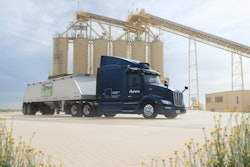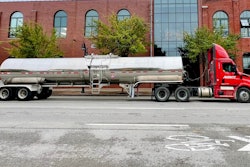The general view in trucking for many years has been that federal law allows employees to unionize, but not contractor owner-operators. That assumption is under increasing scrutiny in recent months, thanks in part to the Internal Revenue Service, the National Labor Relations Board, the California Legislature and the Teamsters union.
The American Trucking Associations now publishes an Owner-Operator Classification Alert, a monthly report on state and federal initiatives that affect the classification of owner-operators as employees or contractors.
On Nov. 8, the National Labor Relations Board affirmed its Sept. 21 staff decision that FedEx Ground drivers at two Wilmington, Mass., terminals were employees and not contractors, a victory for the Teamsters union. Drivers at those Wilmington terminals have voted 24-8 for Teamsters Local 25 in Boston to act as their bargaining representative. It would be the first union representation for any of the 15,000 FedEx delivery-truck drivers nationwide.
Since 1988, the NLRB has ruled seven times that FedEx Ground and FedEx Home Delivery drivers are not independent contractors, according to a Teamsters statement. In the past year, the Teamsters opened owner-operator hiring halls in the port cities of Charleston, S.C., Savannah, Ga., and Miami, but a spokesman said they wouldn’t open any more until carriers proved willing to sign contracts with union labor.
The ATA reported in November that the IRS had withdrawn an attempt to reclassify owner-operators as employees at one Virginia fleet. The IRS had argued that payment per mile – common for owner-operators throughout the industry – indicated the carrier’s control of owner-operators’ routes. ATA countered that this was simply how the shippers paid and that IRS safe-harbor provisions protected the trucking company from such a reclassification by the agency.
Twice in the past two years, California’s Democrat-controlled Legislature passed a bill that would allow port owner-operators collective bargaining rights if they were one-truck operations. Gov. Arnold Schwarzenegger, a Republican, vetoed both bills.






